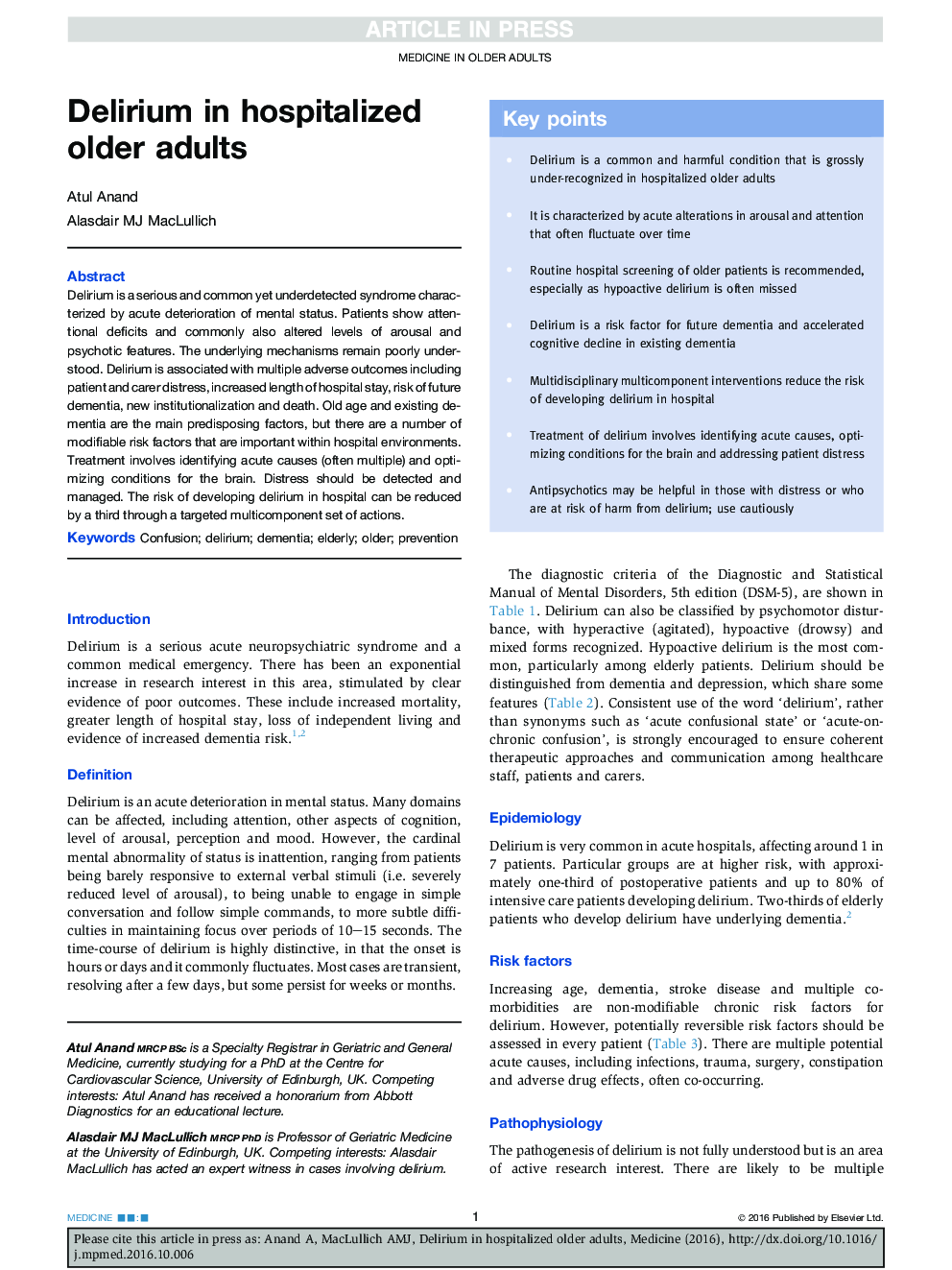| Article ID | Journal | Published Year | Pages | File Type |
|---|---|---|---|---|
| 5681147 | Medicine | 2017 | 5 Pages |
Abstract
Delirium is a serious and common yet underdetected syndrome characterized by acute deterioration of mental status. Patients show attentional deficits and commonly also altered levels of arousal and psychotic features. The underlying mechanisms remain poorly understood. Delirium is associated with multiple adverse outcomes including patient and carer distress, increased length of hospital stay, risk of future dementia, new institutionalization and death. Old age and existing dementia are the main predisposing factors, but there are a number of modifiable risk factors that are important within hospital environments. Treatment involves identifying acute causes (often multiple) and optimizing conditions for the brain. Distress should be detected and managed. The risk of developing delirium in hospital can be reduced by a third through a targeted multicomponent set of actions.
Related Topics
Health Sciences
Medicine and Dentistry
Medicine and Dentistry (General)
Authors
Atul Anand, Alasdair M.J. MacLullich,
